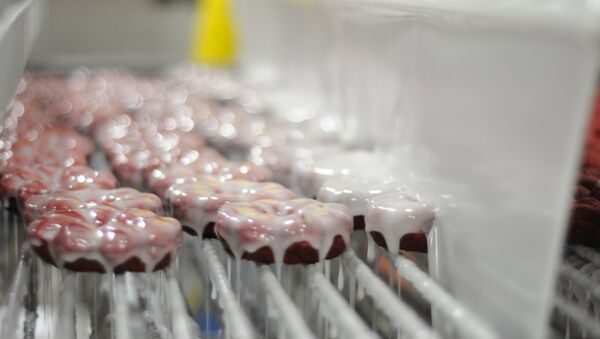On December 11, 2015, 64-year-old Daniel Rushing was pulled over by Orlando police officers for speeding, and not coming to a complete stop after exiting a parking lot.
Rushing responsibly informed the officers that he had a legal concealed weapon in his vehicle, and agreed to a search. A "rock-like substance," according to deputies, was found near his feet and elsewhere throughout the car. The arrest report states that two field tests "indicated the presence of methamphetamines," reporting also that Rushing insisted that the rocks were crumbs of icing from a doughnut he had eaten earlier.
Cpl. Shelby Riggs-Hopkins, the arresting officer, claimed in her report, "I recognized through my eleven years of training and experience as a law enforcement officer the substance to be some sort of narcotic."
False field test results and misidentifications land many innocent people in jail. Early in July, a Brooklyn man spent 29 days in jail after a roadside test misidentified homemade soap in his car for cocaine. He sued Pennsylvania State Police and was awarded $195,000 in damages.
Rushing said, "I kept telling them, ‘That’s… glaze from a doughnut…They tried to say it was crack cocaine at first, then they said, ‘No, it’s meth, crystal meth.’ I didn’t have anything to hide [but] I’ll never let anyone search my car again. I got arrested for no reason at all.” Rushing added, "It was incredible, It feels scary when you haven't done anything wrong and get arrested. … It's just a terrible feeling."
An investigation by ProPublica reveals that at least 100,000 people in the US have plead guilty to drug possession charges based solely on roadside tests that are virtually unchanged since the 1970s.
The investigation reads, in part:
"The field tests seem simple, but a lot can go wrong. Some tests… use a single tube of a chemical called cobalt thiocyanate, which turns blue when it is exposed to cocaine. But cobalt thiocyanate also turns blue when it is exposed to more than 80 other compounds, including methadone, certain acne medications and several common household cleaners. Other tests use three tubes, which the officer can break in a specific order to rule out everything but the drug in question — but if the officer breaks the tubes in the wrong order, that, too, can invalidate the results. The environment can also present problems. Cold weather slows the color development; heat speeds it up, or sometimes prevents a color reaction from taking place at all. Poor lighting on the street — flashing police lights, sun glare, street lamps — often prevents officers from making the fine distinctions that could make the difference between an arrest and a release."
After his arrest, Rushing was booked on possession of methamphetamine with a firearm charge. He was in jail for 10 hours and released on a $250,000 bond.
The Florida Department of Law Enforcement reported that a crime lab analyst in Orlando confirmed that the specimen was not an illegal substance, and the State Attorney dropped the case.
Rushing has hired a lawyer and plans to sue the city for damages within the next month.




